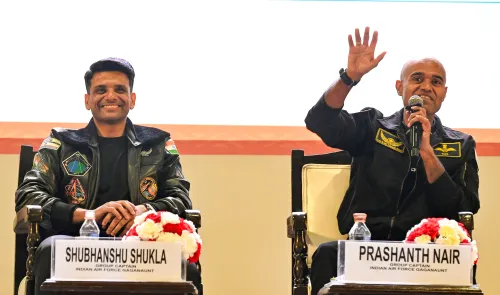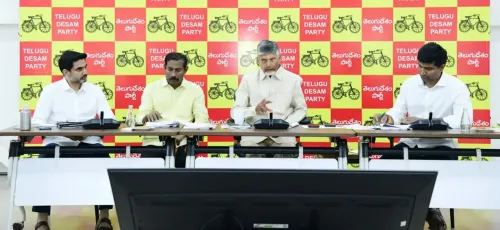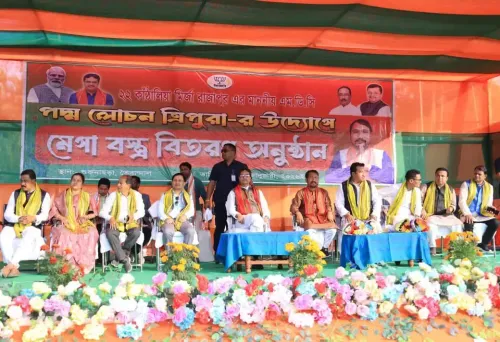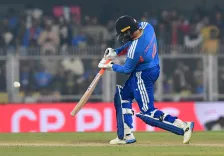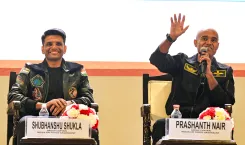TNPCB to Set Up Collection Centres in Coastal Districts for Discarded Fishing Gear
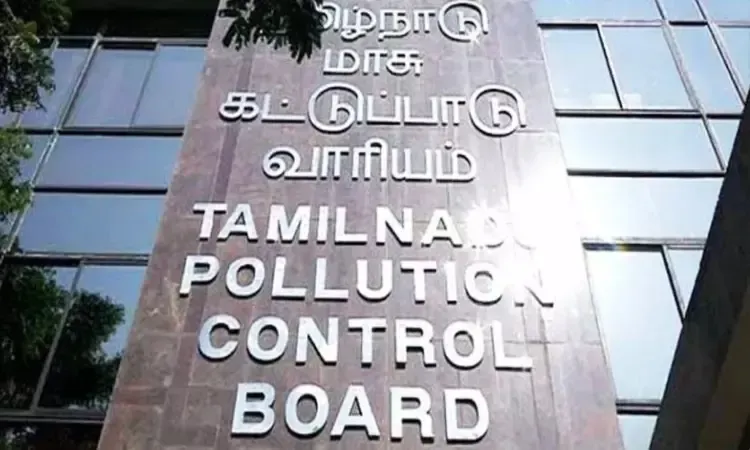
Synopsis
Key Takeaways
- Establishment of TNPCB collection centres for ALDFG.
- Addressing marine life entrapment and injuries.
- Focus on sustainable coastal development.
- Incentives for fishermen to recycle fishing gear.
- Revenue from collection used for operational costs.
Chennai, March 3 (NationPress) The Tamil Nadu Pollution Control Board (TNPCB) is preparing to establish collection centres across 12 coastal districts to effectively manage abandoned, lost, or discarded fishing gear (ALDFG).
This initiative is designed to tackle the increasing environmental threat posed by discarded fishing nets, which ensnare marine life, resulting in injury, suffocation, and mortality of various species, including fish and turtles.
According to TNPCB officials, these nets gradually break down into smaller particles, adding to microplastic pollution, which poses long-term dangers to marine ecosystems and human health.
The Tamil Nadu coastline, a vital nesting ground for the endangered Olive Ridley turtles, has witnessed numerous turtle fatalities due to entanglement in discarded fishing nets.
The collection centres will be established as part of the Tamil Nadu Fishnet Initiative (TNFI) under the TN-SHORE project (Tamil Nadu State Coastal Habitat and Resources Environment Management).
This initiative emphasizes sustainable coastal development, boosting coastal ecosystem resilience, and enhancing the livelihoods of coastal communities.
Under TNFI, designated agencies will not only collect and recycle abandoned fishing gear but also provide incentives to fishermen for turning in discarded nets and other marine waste.
These incentives will be aligned with current market rates.
Moreover, the agencies will carry out comprehensive assessments at selected sites to quantify discarded nets and marine litter.
Significantly, the revenue generated from the collection of discarded fishing nets will be utilized exclusively for offering incentives as well as for the operation and maintenance of the collection centres.
Plastic waste in marine environments has emerged as a major social and ecological issue. Lost, abandoned, and discarded fishing gear significantly exacerbates this problem, causing environmental and socio-economic harm.
Fishing nets left adrift in the sea can wash ashore, spoiling natural vistas, entangling ship propellers, posing risks to vessels, capturing fish, and diminishing fishery resources through “ghost fishing”.
This can adversely affect marine life, including sea turtles, seabirds, and other endangered species, either through entanglement or ingestion.
The majority of fishing equipment is engineered to be robust and does not readily decompose in the ocean. For example, nylon fishing lines can take over 600 years to break down naturally. Likewise, brittle materials such as Styrofoam rapidly disintegrate into microplastics, further contaminating the ocean.
Considering that ALDFG constitutes a substantial portion of marine plastic waste, focused measures are essential in addressing this issue as part of broader efforts to combat plastic pollution.
The TNPCB’s initiative represents a critical step toward sustainable coastal management and marine conservation.


